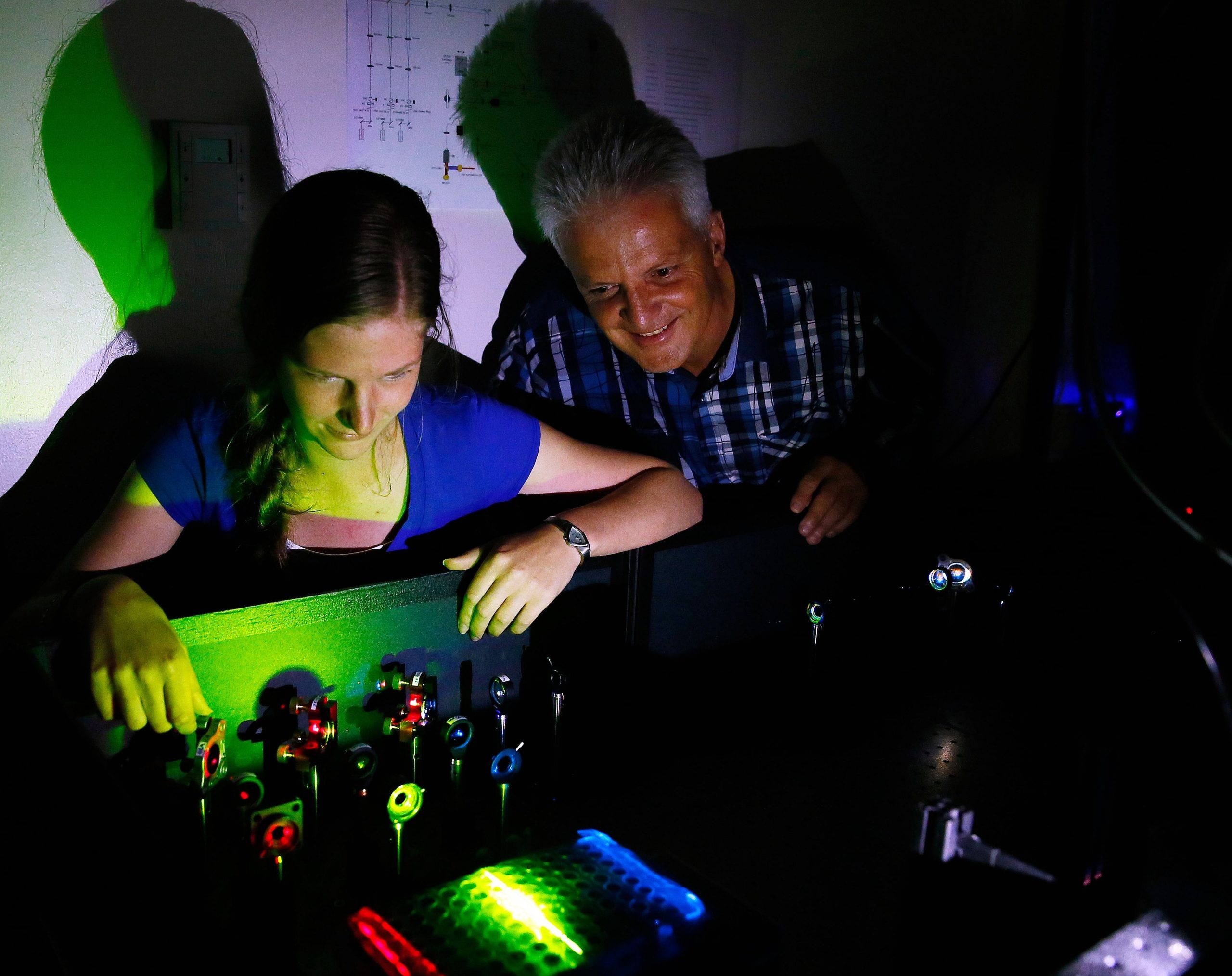A protein involved in folding and clamping DNA has for the first time been shown in action. Researchers from Delft and Heidelberg demonstrated that the protein condensin is much more dynamic than assumed.
DNA molecules are like extremely long strands of fairy lights: it’s almost impossible to disentangle and store them neatly. A single human cell contains two metres of DNA molecules but is somehow able to fold them neatly into chromosomes measuring just a few micrometres. The protein condensin is known to play a crucial role, but the details of the process are still largely a mystery. For the first time, researchers at TU Delft’s
Kavli Institute of Nanoscience and the European Molecular Biology Laboratory in Heidelberg have successfully filmed the behaviour of an individual condensin molecule.
“Until now, condensin was seen as a somewhat stiff molecule. You can compare it with a hair clip: condensin secures the DNA in loops by clicking open and closed. But our latest research shows that it would be better to compare it with an elastic band,” said Jorine Eeftens, a doctoral candidate in Cees Dekker’s research group. She worked with postdoc Allard Katan on the microscopy. “We also discovered that condensin has four different positions rather than two: not just open and closed but also a sort of double loop and a semi-open position condensin probably uses these various positions to attach to a DNA strand before storing it away compactly.”
Earlier studies on the so-called Structural Maintenance of Chromosomes (SMC) protein complexes were done with electron microscopy or with X-ray scattering. Although the imaging is very precise, it prohibits any natural occurring dynamics.
This study was the first time that the proteins were studied in a wet physiological environment with atomic force microscopy (AFM). This technique allowed the researchers to study the protein complexes in their natural environment.



Comments are closed.